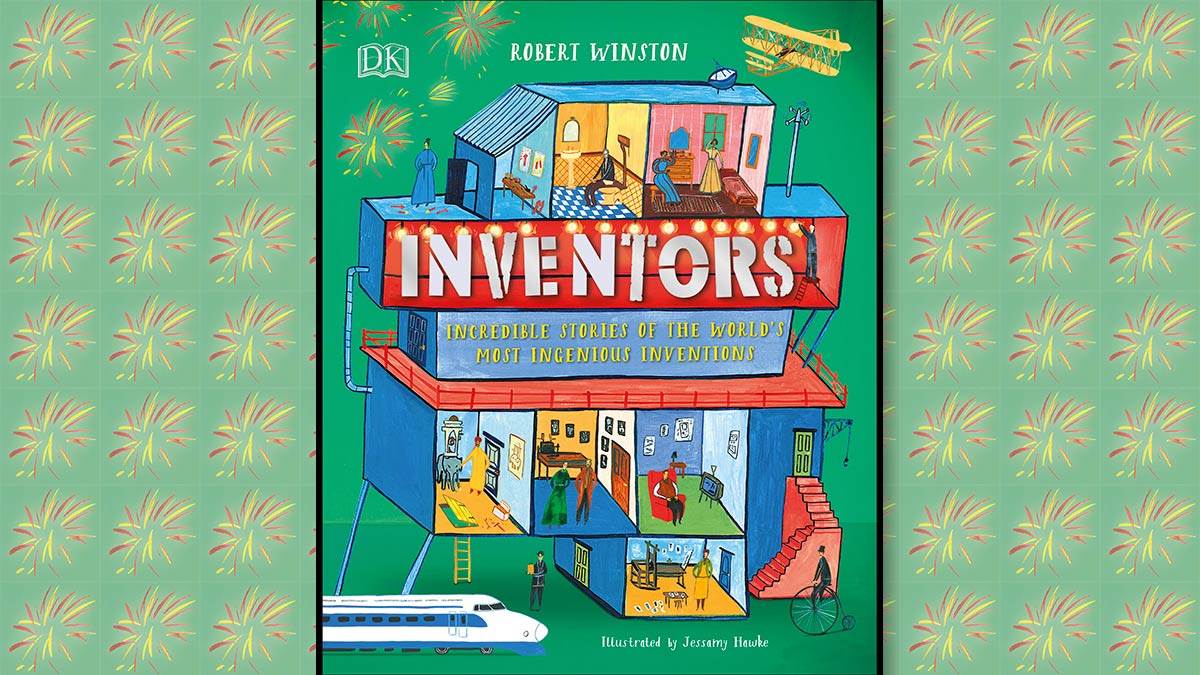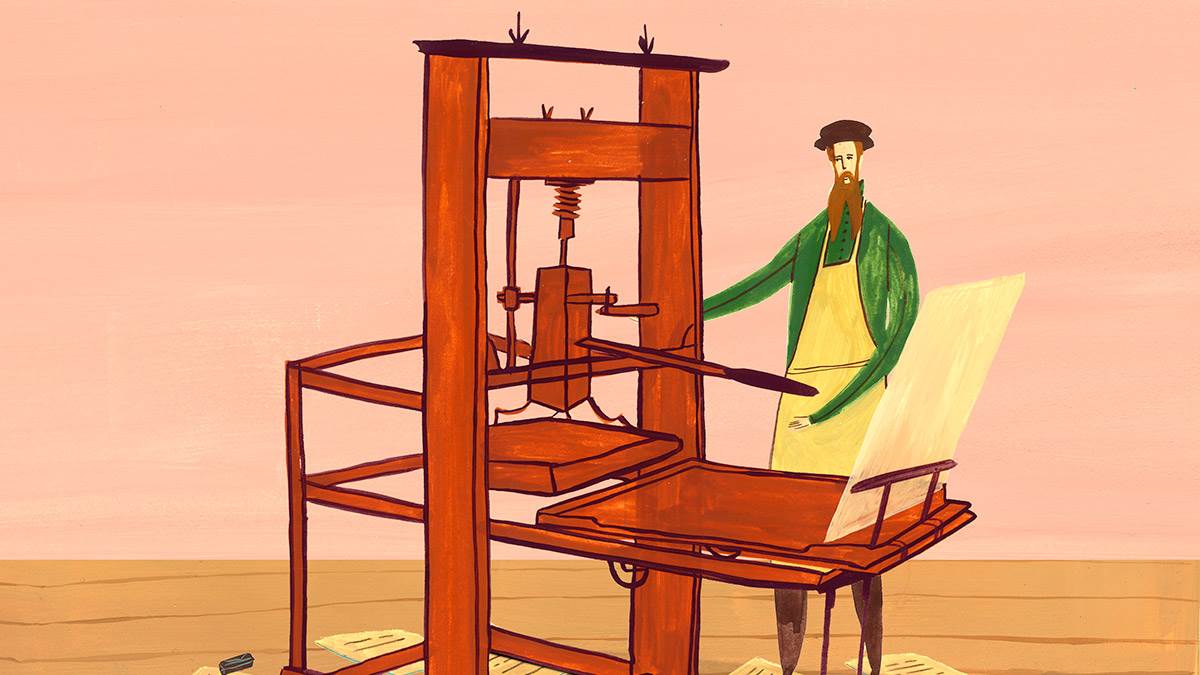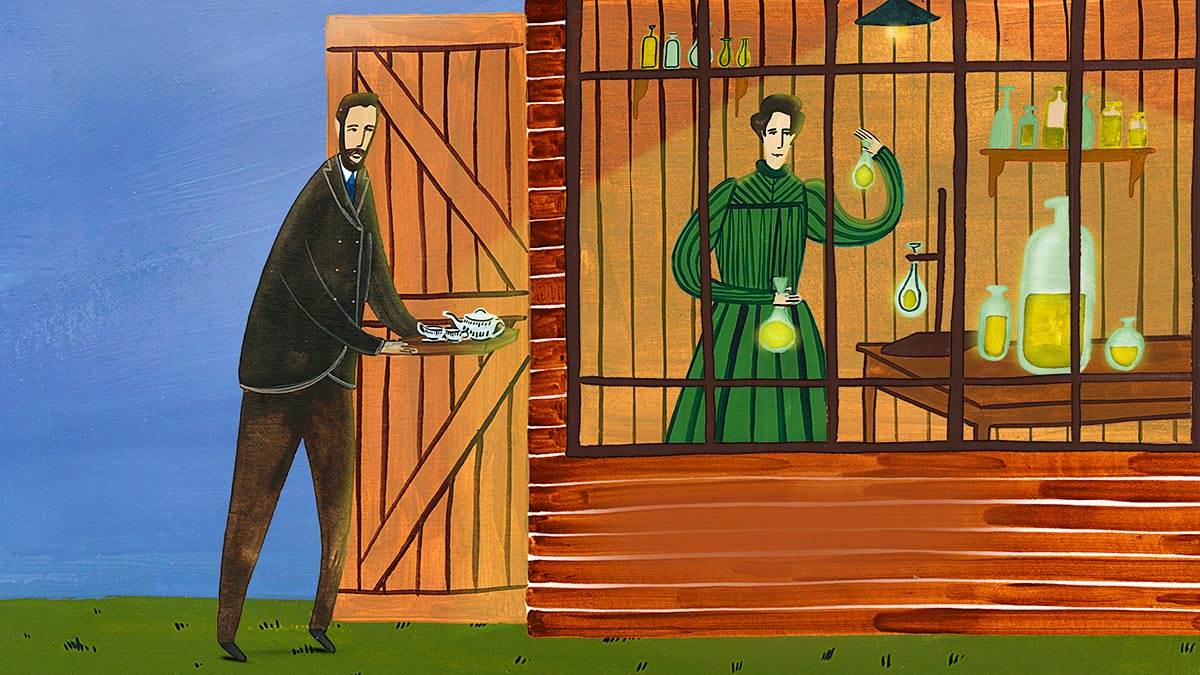Inventors: 9 incredible people who changed the world we live in
Published on: 05 November 2020 Author: Professor Robert Winston
Professor Robert Winston and Jessamy Hawke's book Inventors has been shortlisted for Best Book with Facts at the Blue Peter Book Awards! Here, Professor Winston tells us more about some of the incredible people who appear in the book...

Inventors tells the surprising stories of the world's most ingenious inventions. Some of these inventions happened by accident; in the past, some women inventors worked secretly when they were not allowed university education; and some inventors died testing their devices.
How surprising that very few people in this book were geniuses - many were not even particularly brilliant at school. But nearly all, like many of us, had an idea. Unlike many of us, though, when they kept on failing, they tried to work out what was wrong with the invention they had thought about. They persisted, constantly trying all kinds of ways to improve what they started.
Inventors also often do what they do to help other people. Some are just curious. What is important is that nearly all of these inventors changed the world around them.
1. Johannes Gutenberg

The inventor who I think did more to change the world than almost anybody else was born over 600 years ago. Johannes Gutenburg lived in Mainz, in Germany. Pictures of him show his very long, straggly forked beard coming down to his chest - it probably got quite messy if he wasn't careful at breakfast!
He invented the first printing press, and without his invention you would not be able to read Inventors. Printing changed the world because before then everything had to be carefully copied by hand and written down slowly. But his press printed 250 pages an hour.
To assemble it, like many inventors, he used other people's ideas. His press applied huge pressure of the metal type and ink to the paper. It came from what he had seen around him. He lived where wine was made and his press was a copy of the big machines used to press grapes, or olives to make oil.
Another industry was metalwork, making intricate objects out of gold. He didn't melt gold but used molten lead to fashion letters for his metal type. These little letters could be reused and moved around in the press for new words. The oily ink he manufactured prevented the paper and typeface from sticking.
We do not know much about what kind of person he was, but it is clear he collaborated with a team of people and he was happy to change how knowledge was spread around the world.
2. Richard Turere
Richard Turere is a modern inventor. He lives in Kenya; his family are from the Maasai people, Africans famous for bravery. There, lions, rhinos and other wild animals roam the countryside. Maasai traditionally live by raising cattle which are crucial for their survival.
When he was seven, Richard's dad sent him to watch the cattle to ensure they were safe. The most precious of all was the family bull. Richard was 12 when, one morning, he discovered it dead. Being brave, he had already used a torch to scare lions at night. Like many people of his age, he was also fascinated by electricity.
He used old wires and electrical components to rig a series of bulbs. He took an old car battery and a solar panel, and after experimenting with bits from his mum's radio, got the lights to flash on and off. His mum may have been a bit cross at first but the family's cattle were safe. Other Maasai people used his idea to keep their herds from danger.
3. Marie Curie

Marie Curie spent many back-breaking months shovelling heavy earth. She and her husband, Pierre, believed it had special properties. Eventually, she discovered it contained the radioactive element radium. Later, she discovered another element, polonium.
Sadly, Pierre was killed in a street accident but she continued and won two Nobel prizes. She used radioactivity to develop portable X-ray devices, important for medical treatments.
Radioactive materials seemed so strange glowing in the dark. She used polonium as a night-light and produced it at parties to impress guests. At first, nobody understood the dangers of constant radioactive exposure and eventually she died from its long-term effects.
4. Wan-Hu
My favourite inventor is Chinese, Wan Hu. Over 400 years ago, he wanted to fly to the moon. The Chinese people had invented fireworks and he took a stoutly built chair, carefully attaching 47 rockets to it.
When the rockets were lit, there was a loud bang and Wan Hu disappeared in a cloud of smoke. There was a strong smell of burning and no chair was left but I don't know whether he got to the moon.
5. Ruth Amos
Ruth Amos is a British inventor. Her great idea was the StairSteady. This device locks onto the banisters which helps older people and those who are frail from the risk of falling when they climb stairs. It is such a simple idea but has prevented so many people from picking up serious or even life-threatening injuries when they are merely in their own home.
Her fun children's inventions include a paper unicorn with sweets which drop from its behind, and a frightening-looking chair which extends through a car roof to give a very different view - not to be used in heavy traffic. She also made a sneeze-operated flame thrower. I think she loves a bit of danger.
6. Graham Alexander Bell
Graham Alexander Bell's first actual phone call was accidental. Alexander and his assistant, Thomas Watson, were experimenting and Alexander had spilled some battery acid. He shouted to Thomas who was in the next room for help, but Thomas Watson heard him through the receiver.
7. Lizzie Magie
American Lizzie Magie invented Monopoly, but Charles Darrow stole the game. Although she was eventually paid just $500, Charles had become a millionaire.
8. Walter Hunt
I bet you'd like to walk on the ceiling! Inventor Walter Hunt, who invented paperclips, also made a pair of shoes that allowed him to hang upside-down and make dirty marks on the one part of the room which never gets swept.
9. John Harington
Finally, we shouldn't forget John Harington who didn't like dirt. During his banishment from Queen Elizabeth I's court, he whiled away time by inventing the flushing toilet. The actor Kit Harington, from Game of Thrones, is a descendant of his!
Topics: Non-fiction, Historical, Blue Peter Book Awards, Features





Add a comment